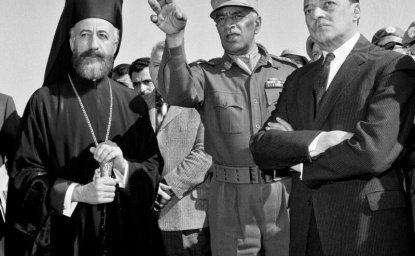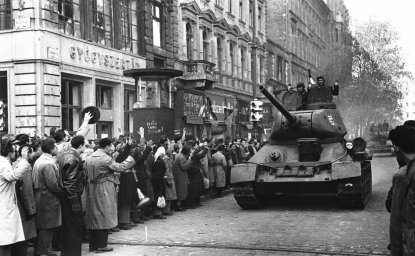On January 31, 2008, the Romanian Constitutional Court dealt a severe blow to the ability of Romanian civil society and historians world-wide to come to terms with Romania's troubled past. The court, in a unanimous decision, found that the law governing the establishment and operation of the National Council for the Study of Securitate Archives (CNSAS) was unconstitutional. The court argued that the activities of the council made it the equivalent of a special court, which is prohibited by the Romanian constitution. The court reversed several earlier decisions in which it found that the Council's decisions were not judicial in nature and that therefore it did not place itself above the judicial branch. Presently, the government and parliament have 45 days to rewrite the law to conform to the decision of the court.
CNSAS was established in 1997 through a law passed by the parliament as a repository of the files of the Securitate, the Romanian secret police. The Council's primary mission was to allow private citizens to review their own files. Recently, the Council received over 2 million files from the former Securitate archives, and its mission was expanded to allow it to verify if persons in public office actively aided the communist regime as informers or collaborators. The Council's activities caused quite a stir as a number of ministers, members of parliament, members of the Orthodox Church leadership, and journalists were unmasked as informants.
The verdict also renders all decisions made by the Council over the last 10 years invalid. The ruling places at least a temporary lock on the ability of people to see their own secret police files. CNSAS had recently begun the process of verifying members of the judiciary. Constantin Ticu Dumitrescu, who initiated the 1997 law that established the Council, told media sources that several public personalities in the judiciary were about to be unmasked as collaborators, hinting that some were even associated with the Constitutional Court. Claudiu Secasiu, a member of the CNSAS leadership college, told sources that the decision sets Romania back by 10 years, restarting discussions on the necessity and timeliness of once again considering the role of the Securitate in the communist dictatorship.
By closing down access to the Securitate files, the court effectively undermined the process of reassessing the communist experience and legacy in Romania, begun in 2007 by the Presidential Commission on the Study of Communist Crimes in Romania. The Commission, whose findings were accepted by Romanian President Traian Basescu before the Parliament, called for the declassification of all documents of the former regime.
Through the activities of the Romania Initiative, the Cold War International History Project has featured findings based on Romanian archives, including files from the secret police archives. Any study of the Romanian experience in the Cold War necessitates access to a full spectrum of archives. Of those, special importance is held by the Securitate archives, given the pervasive role of the Romanian secret police in establishing and maintaining the communist regime.
Update:
February 11: The Romanian Government issued an emergency executive order (No 1/2008) which restructures the activities of the Council. While the CNSAS is now, once again, able to study the archives of the Secret Police, it is no longer able to issue verdicts against former collaborators. The emergency executive order will remain in effect until the Romanian Parliament will pass a new law covering the activities of the Council.
February 5: The Romanian Government proposed an executive order which will drastically revise the activity of CNSAS. The order, if signed, would remove the Council's ability to verify public officials regarding possible collaboration with the secret police, and make its decisions public. CNSAS will remain in possession of the Securitate archives and will make personal files available upon request. In its draft form, the executive order makes the Council's role in publicizing its findings regarding the identity of former Securitate collaborators very unclear.
For more information click on the links below:
Inside the Securitate Archives
Romania in the Cold War - Documents from the Virtual Archive
International Conference: The Impact of Western Broadcasting During the Cold War
International Conference: Stalinism Revisited: The Establishment of Communist Regimes in East-Central Europe and the Dynamics of the Soviet Bloc

Cold War International History Project
The Cold War International History Project supports the full and prompt release of historical materials by governments on all sides of the Cold War. Read more




